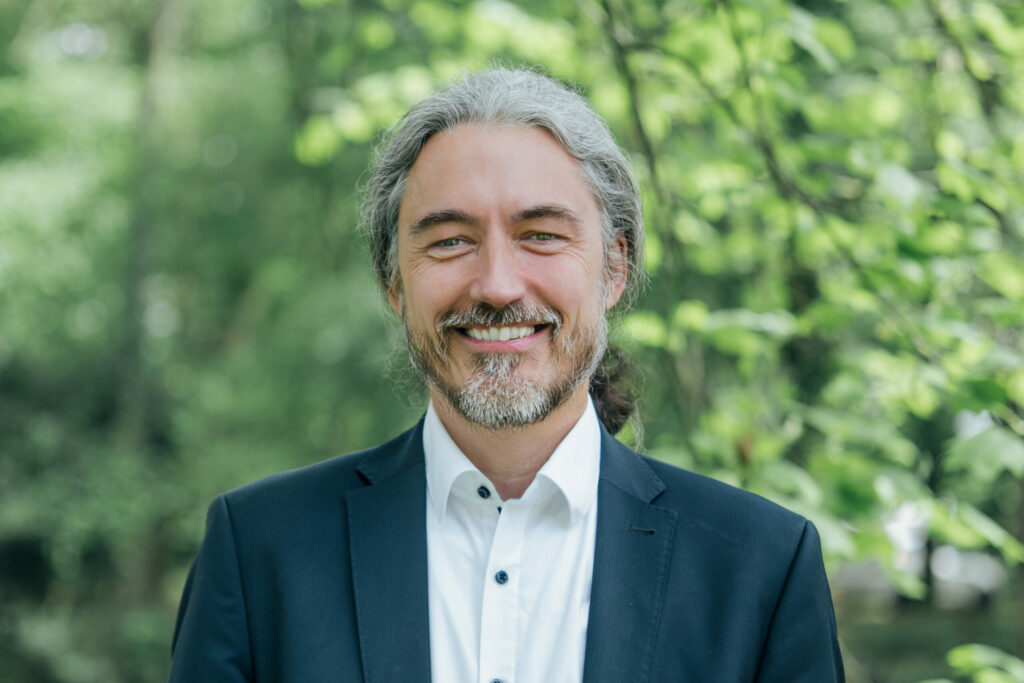Adequate relationships as a means of healing individual and collective trauma
Author: Thomas Hübl
Category: Psychology,Trauma
Issue: No. 97
Painful experiences often lead to a repression of the experience and to unconscious reactive behavioral patterns. The trauma response, the inner process in traumatizing situations, is an intelligent protective mechanism of our body and psyche in very threatening and overwhelming situations. In this interview, author and trauma expert Thomas Hübl reveals how adequate relationships can contribute to the healing of trauma and advocates creating more spaces for trauma healing.
Tattva Viveka: How did you approach the topic of trauma?
Thomas Hübl: I have been leading group seminars all over the world for over twenty years and have come into contact with trauma time and again. But it actually started in Germany. The collective trauma fields became very visible in my groups, especially the Second World War and the Holocaust kept coming up. From my current understanding, I know that one of the reasons for this was that the members of these groups felt safe, connected and attuned to each other because of the meditative practices, self-awareness and deep relationship work we practiced. This led me to delve deeper into this subject area, as I needed to address how we deal with this when such an issue arises so massively in a group. This gave rise to the collective trauma integration process. My team and I then exported this from the German-speaking cultural area to other cultural areas and today we work with collective trauma fields all over the world. This led to me writing my first book “Collective Trauma Healing”.

TV: What do you understand by trauma? How would you define the term?
Thomas: Trauma is not the experience that someone goes through. It’s a traumatic experience, for example abuse, violence, a car accident or the neglect of children in families. Many reasons lead to trauma. These are overwhelming experiences. They are so overloaded for our nervous system, for our body, for our psyche, that on the one hand we are under extremely high stress, which strongly stimulates our attack-or-flight impulse in the autonomic nervous system. Or, on the other hand, we get into a state of being frozen. On the one hand, there is a lot of stress and on the other hand, the nervous system has the capacity to turn off this stress as if the lights were going out in one part of the city. In other words, we basically turn off the sensitivity in that part of our body, our emotions, perhaps also in mental functions, so that we can survive better. What happens in between is a kind of fracture, a fragmentation.

This is an intelligent process that has developed in our nervous system over tens of thousands or hundreds of thousands of years. In a situation in which we are triggered, we quickly feel agitated, stressed, frightened, ashamed or angry, even if this often has nothing to do with the situation. This then results in three sets of reactions. For example, some people activate the attack-or-flight impulse. Others simply become more uninvolved, as if numb. They no longer feel anything, they withdraw inwards and become indifferent. However, we are more aware of the first group of people who explode “for no reason”. Suddenly there is a lot of stress and the people around them don’t understand. We wonder why he or she is reacting like this at that moment. In contrast, it is also a trigger reaction when people withdraw inwardly, distance themselves and become numb. It just looks different. The third set of reactions consists of looking at the world where our trauma is located as if we were looking through a fragmented pane of glass, as if someone had thrown a stone into the pane of glass. In other words, our perception of the world and our relationship to the world is damaged. This is the beginning of “othering”, of alienation. It involves turning others into others by focusing on differences such as political opinion.
This is also how racism and anti-Semitism arise, as well as many other movements that are traumatic or traumatizing.
Much of this arises in our nervous system. Many people are certainly familiar with the following situation: In our intimate relationships, certain topics are sometimes brought up and suddenly we no longer have any capacity at all to stay in relationship. This then ends in arguments and discussions or arguments and conflicts. At such times, we feel stuck. Only after a certain amount of time do we reach a common point again. It is a sign that we are touching a trauma when it becomes so tight that the whole inner space is lost when this particular topic is addressed.

TV: How would you tell the difference between an individual trauma and a collective trauma? And how can it be that a trauma that doesn’t affect us on the surface, such as the Second World War, which we didn’t even experience, still has an impact across generations?
Thomas: Our individual trauma is, of course, our biographical trauma. These are traumatizing events that we have experienced. We can usually make a connection to these events, unless the trauma is so strong that it has been repressed to such an extent that we can’t remember it. However, most people can make a connection between symptoms and a specific event or series of events. However, there are also many people who have symptoms in their lives but say of themselves that they are not traumatized. Nevertheless, they have recurring fears, for example. I live in Israel at the moment, and here you can clearly see that it is often the second and third generation in families of Holocaust survivors who are traumatized. Of course, there is also an equivalent in Germany. Another example would be colonialism, which left behind a great deal of trauma over generations, or racism in America.

About the interviewee:
Thomas Hübl is an author, international seminar leader and spiritual teacher of modern mysticism who combines the central principles of the great wisdom traditions with the findings of academic science in his work. Since 2000, he has been leading events and trainings worldwide that focus on the healing and integration of collective trauma.
This article was originally published on the German website: Trauma reduziert unsere Beziehungsfähigkeit




